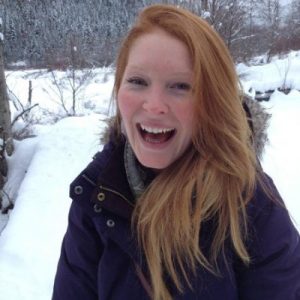 Flashback to 18 year old me: bright eyed, bushy tailed and hell-bent on pursuing a degree in psychology. Less than a year later, I was already disenchanted with that idea. When I began my undergraduate degree, I was convinced that a career in counselling was my passion. As a full-time first year student it was required that I select five courses and the first four were easy: Psychology, English, Philosophy and History. Politics became part of the mix through process of elimination – I was the least opposed to it as compared to any other option. By the end of first year, I had declared a major in Politics.
Flashback to 18 year old me: bright eyed, bushy tailed and hell-bent on pursuing a degree in psychology. Less than a year later, I was already disenchanted with that idea. When I began my undergraduate degree, I was convinced that a career in counselling was my passion. As a full-time first year student it was required that I select five courses and the first four were easy: Psychology, English, Philosophy and History. Politics became part of the mix through process of elimination – I was the least opposed to it as compared to any other option. By the end of first year, I had declared a major in Politics.
Upon reflection, it felt so necessary that I know exactly which path to pursue fresh from high school. Naturally, as an 18 year old I was fully equipped with all the necessary experience to reach some sort of informed decision about the direction of my life. Right? Wrong. In fact, fast forward to the end of my bachelor’s degree four years later: still bright eyed, still bushy tailed and absolutely certain that I was going to law school.
For about a year after completing my undergrad, I worked as a server in a local waterfront restaurant. Simultaneously, I studied for the LSAT and prepared several law school applications. Unfortunately (or, perhaps fortunately), my efforts were unsuccessful and now I found myself at a real crossroads. I felt slightly stagnant and that was uncomfortable. So, I began applying for different jobs in the hope that a career path would present itself. But, I was only applying for jobs that felt familiar or comfortable.
Looking back, my desire to grow and the action I took as a result – applying for “comfortable” jobs – were most certainly at odds. Luckily, the job I ultimately accepted was neither familiar nor comfortable.
About a year after completing my undergrad, I became an outside sales representative in the automotive and industrial sector. Let that sink in for a moment. Here was the girl who was going to counsel people for a living, and also the girl who was going to argue in courts of law for a living, and now she is cold calling on collision and mechanical repair shops and presenting products to customers? My life had definitely zigged and then zagged and then zigged again in the four years between ages 18 and 22. And you know what? Thank goodness for those zig zags.
Finally, I found my groove (well, at least for a short while). Let me tell you a bit about my daily responsibilities as a sales rep. The company I worked for has contracts with about 30 different manufacturers. I began by focusing on several of these product lines, and was directed to traverse the lower mainland stopping in at any business that might have a need. For the most part, these were automotive shops and supply stores, although once or twice I got creative and dropped by a winemaker’s store and a shipyard. At the beginning, before I had developed any sustained relationships with customers, I experienced many suspicious looks that culminated in “thanks, but no thanks” (and this was the nicest version of ‘no’ that I received). My repertoire of rejection only encouraged me, as this was a challenge I simply had to surmount. Eventually, with a little more experience and product knowledge, I was able to create a network. At this point, some sales calls were more akin to talking business with friends than trying not to sweat or blush as I nervously attempted to engage a new customer.
I cannot find the words to express how much fun I had with that first sales position. Nor can I find the words to express how much I learned, even in that very short span of time. Though, as much as I looked forward to work each day, another pinch of self-awareness was creeping up on me. I was experiencing the beginnings of a passion that would not have been possible at 18, or at 22. And I wanted to learn more! It began with a Professional Sales Certificate, completed through Langara College. Still, this was not enough. It was at this point I discovered the Master of Management program. I applied and this application process was very different from the law school application process. Yes, I still had to write a test (LSAT to GRE) and yes I still had to write some creative pieces as part of the application. But, I felt more certain, more committed, and definitely more passionate.
Following graduation, I want to work in a sales position once again. However, if there is one important lesson I have learned it’s that you really cannot ever be sure about where your personal path will lead. I know, very cliché. Also, I promise you, very true. So, craft a plan, follow a direction but always, always be open to the multitude of opportunities that are available. If you don’t feel sure, that’s ok – a little bit of uncertainty adds excitement. Capitalize on that uncertainty and allow it to open you to new experiences.
Stay healthy, my friends.
Written by Savana Caruk ’17
 Follow
Follow